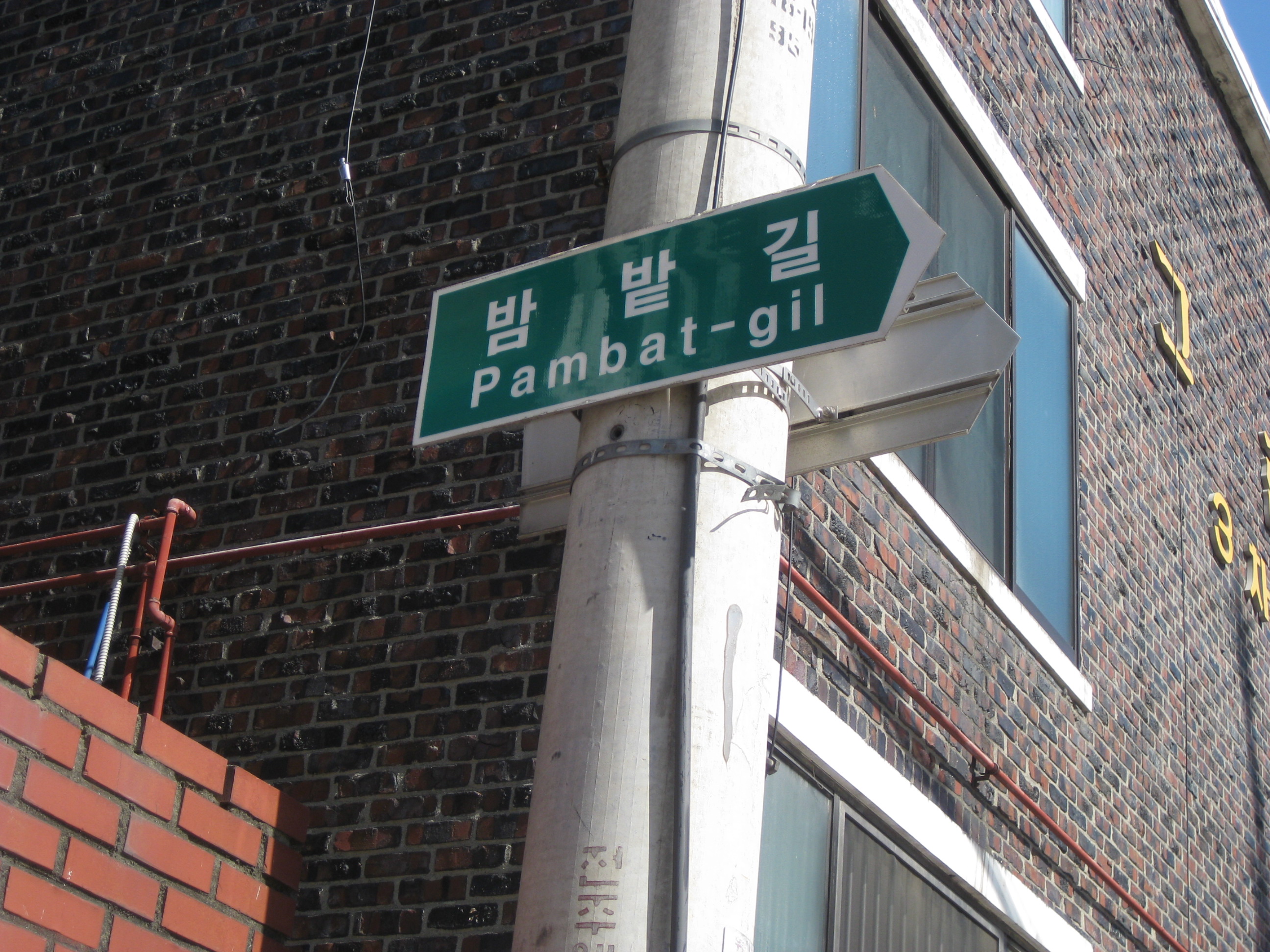When I first went to Korea, in 2001, I knew next to nothing about it, and I didn’t speak the language at all. I’d given myself a crash course in the hangeul alphabet and knew a few basic phrases, and that was it. I was in those days too intimidated by the language to give it serious study, but I couldn’t help picking up words and phrases as I went along.
One word I heard constantly was 어떻게 (eotteoke). One day I asked one of the Korean teachers what it meant. Literally, she explained, it means “how,” but it’s much more than that. Koreans use the word kind of the way American English uses “what,” as an exclamation, a complaint, a rebuke, an expression of bafflement.
Early the next morning, I stepped out onto my little street of Pambat-gil (which I did not know until after I left Korea meant “Chestnut Grove Street”). Off in the distance was an ajumma. She stood in the middle of the street, arms spread wide. I could see that she was gripping a cell phone in one of her uplifted hands. And she was crying out, in the most mournful tone, with the final vowel long drawn out, “Eotteoke! Eotteoke!”
I felt a giddy sense of elation: I understood! Something was happening in Korea, and I got it. What I got, though, was that this poor woman was howling out her shock and sorrow in the middle of the street at 8 am. Whatever news had come through that cell phone, it wasn’t good.
I was reminded of that dissonance — of the thrill of understanding tempered by the sorrow of what’s understood — as I read a long Facebook post in Korean today. Usually I let those pass by unread. They’re still difficult. But I’d just yesterday finished reading the classic Korean short story 사랑방 손님과 어머니 (Mother and Her Guest), and I thought maybe I could manage the five paragraphs my friend had written.
I’m glad I did. I learned that my friend’s grandmother had passed away, an important event that I otherwise would have missed. She wrote beautifully about the way her grandmother had been a teacher to her, how at a difficult time in her life her grandmother had taken her in and taught her how to make dolls’ clothes, how the family sat together sharing memories and how each person’s memories were different, but they were all warm memories.
I’m sorry that my friend has lost a dear family member, but I’m also thrilled that — with much help from an online dictionary — I could share in my friend’s memories of her beloved grandmother, her sense of loss and sorrow. I’m pleased that words I learned from reading Mother and Her Guest helped me to understand what my friend had written. I am also grateful that I know enough Korean now to find out about my friend’s loss and express my condolences.

